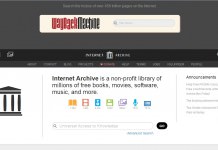![]() From the press release:
From the press release:
Gale, part of Cengage Learning, and 18thConnect, a scholarly organization dedicated to forging links between eighteenth-century archives and today’s digital research environment, today announced a partnership to share scholarly content and improve the searchability of documents within Gale’s Eighteenth Century Collections Online (ECCO) archive.
“Gale’s partnership with 18thConnect gives us a unique opportunity to collaborate with a leading scholarly organization in order to improve upon the user experience within ECCO, the leading database for research and teaching of the eighteenth century,” said Jim Draper, Vice President and Publisher, Gale.
Gale’s ECCO archive, one of the largest academic research collections of its kind, contains more than 180,000 key English and foreign language titles published primarily in the United Kingdom. Despite Gale’s use of the best in Optical Character Recognition (OCR) technology, eighteenth-century typefaces can still be challenging to capture with perfect accuracy, which may impact results when searching or data-mining.
Recently, 18thConnect was awarded National Endowment for the Humanities (NEH) sponsored supercomputer time to re-run page images from the ECCO archive through an open-source OCR program that will generate cleaner texts. This improved OCR-created text will be incorporated into ECCO, resulting in improved searching within the resource. In addition, registered 18thConnect users will then have the opportunity to review the improved texts and correct them using a tool housed on the18thConnect website. The correction tool will be built thanks to a grant awarded to Miami University of Ohio from the Mellon Foundation. Using this crowd-sourced correction tool, users can further correct issues not caught by the OCR process, and in exchange they will have the option to submit the revised text as a scholarly edition. 18thConnect will provide unlimited access to the corrected plain text or encoded text of the document submitted, depending on the researcher’s needs. Accepted scholarly editions will be filtered back into the ECCO archive on a periodic basis, and acceptance letters will be sent on behalf of researchers to the Promotion and Tenure Committees at their respective institutions





























